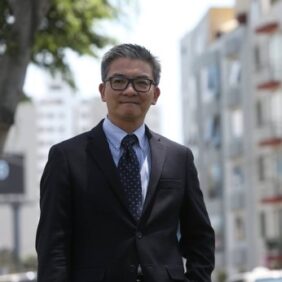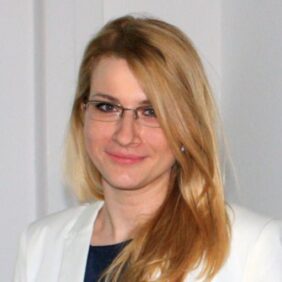ISOCARP Community of Practice on Urban Innovation
Open call to ISOCARP-members to join the new Community of Practice
Deadline for the application – 21st of June, 2020.
Inspired by ISOCARPs dynamic first Community of Practice on Urban Health, soon to be followed by a second CoP on Urban Mobility, we are happy to pre-announce a third CoP on Urban Innovation – with as motto ‘Urban Futures – Innovations Shaping Future Cities’
The intended CoP Urban Innovation stems from the new collaboration between ISOCARP and the Toronto-based Urban Economy Forum, underpinned by a joint MoU to exchange knowledge and deploy complementary activities, also related to the innovative World Urban pavilion initiative in Toronto.
The CoP Urban Innovation will be led by ISOCARP members Marco Kamiya, Senior Economist, Knowledge & Innovation Branch at UN-HABITAT at Global HQ in Kenya, Michael Stott, Director City Strategy and Place at Urbis in Australia, Ana Peric, Lecturer at ETH in Switzerland / ISOCARP Board Member, and Annie Woo, Director of CISTRI, in Singapore.
What are cities doing to create the future integrating tech, investment, and entrepreneurship? Cities are implementing smart cities solutions with drones, 3D printing, Artificial Intelligence, driverless cars, Internet of Things and other innovations, all those to tackle issues of urban planning, economic growth, climate change and the most pressuring challenge of the COVID-19. Yet, the challenge is ‘socially smart cities’ by integrating IT in cities for and by people, aligned with the SDG’s and New Urban Agenda. The CoP on Urban Innovations will have three major activities:
- Tech Futures: Find urban solutions and civic engagement activities based on the use of technologies for better urban planning, such as: 3D printing (e.g. in housing), Artificial Intelligence (identifying electricity and other basic services), driverless cars (where and how), Internet of Things (property registration, identifying demand) and IT-supported public participation and collaborative planning, including the COVID-19 policy tools.
- Planning Futures: Explore the deliberation trends and participatory techniques that planners develop to co-create the city with a variety of stakeholders, finally leading to behavioral, social and cultural change as part of urban innovation; and examine how public spaces, compact cities, and density are being redesigned to adapt to the climate and pandemic health crises.
- Economic Futures: Identify the ideas for economically viable cities that deserves attention and can be strengthened with technologies, participatory budgeting, universal insurance, universal income, mobile banking, and other measures for sustainable urban economy.
Stewarded by Marco, Michael, Ana and Annie, the CoP Urban Innovation aspires the following activities for a starter:
- “101 Urban Innovation Ideas”, a digital platform and publication gathering innovative ideas that apply tech to urban planning and urban economy. Focusing on practical solutions rather than theory, the compendium will provide the challenge, solution, and methods (costs, organization) to distil the learnings and knowledge and implement the ideas in different contexts. The digital platform will be permanently updating, while a PDF-publication will be generated on demand.
- Think Pieces for discussion and awareness-building within and outside ISOCARP, in collaboration with ISOCARP’s Scientific Committee.
- Organization of a Special Sessions on Urban Innovation during the ISOCARP World Planning Congress in Doha in November 2020, and participation in other global and regional events, such as the Urban Economy Forum (UEF) in Toronto in October 2020.
- Exploring involvement in the World Urban Pavilion initiative of UEF.
- Design of training courses and capacity building projects, through ISOCARP’s Institute.
If you have interest to be an active and contributing member of the Community of Practice on Urban Innovation, please write to urbaninnovation@isocarp.org, suggesting at least one original idea for urban innovation that the CoP can consider for application. We are striving for equitable and fair representation of people of different genders and geographies in all our Communities of Practice and as such, encourage all urban innovators to apply, particularly woman, underrepresented groups and those from the Global South.
We are waiting for applications until the 21st of June, 2020.
Frank D’hondt
Secretary-General ISOCARP

Marco Kamiya, Senior Economist, Knowledge & Innovation Branch, UN-HABITAT,
Based in Nairobi, Kenya
Based at Global Headquarters in Nairobi, Kenya, he leads operational and normative work on urban planning, economy, finance, and innovation. Marco has worked in more than 20 countries advising central governments and city leaders. The Sustainable Development Goals and the New Urban Agenda are the main frameworks for UN-Habitat activities. He has co-edited “Economic Foundations for Sustainable Urbanization” (UN-Habitat & Morphologie Institute Paris), “Finance for City Leaders Handbook” (UN-Habitat & University College London), and co-authored The Future of Asian and Pacific Cities Report 2020 (UNESCAP, UN-Habitat, UNDP) among other flagship publications. Marco is a member of the United Nations Economic Network, UNEN; and of the International Society of Cities and Regional Planners, ISOCARP. Previously, he occupied senior positions, leading teams on private sector development, infrastructure finance, competitiveness, integrated loan operations, technical cooperation and policy advisory activities at CAF Development Bank of Latin America (Caracas, Venezuela), the Interamerican Development Bank (Washington DC), and was director of projects with development banks at PADECO Co., Ltd., a development consulting firm (Tokyo, Japan). He studied International Development at Harvard University.
 Michael Stott, Director City Strategy and Place, Urbis
Michael Stott, Director City Strategy and Place, Urbis
Based in Brisbane, Australia
Michael is a designer, planner and strategist who has spent the last 20+ years working on projects around the world. Michael’s diverse professional experience includes working for several leading, globally recognised consultancies and government entities at the forefront of changing how cities are designed and planned. In his practice, Michael focuses on creating compelling, place-led design solutions and delivering projects that work to increase the quality of life of community residents, whether through strategic planning and policy development, individual site design or large-scale master plans, urban design for new transportation corridors, or the design of a community park or intimate urban plaza. As an accomplished facilitator and speaker, Michael regularly presents and consults internationally on issues related to placemaking, urban renewal and creating healthy cities. He has also contributed to numerous publications, summer schools, urban design master classes, and placemaking seminars.
 Ana Peric, Lecturer, ETH Zurich,
Ana Peric, Lecturer, ETH Zurich,
Based in Zurich, Switzerland
Educated as architect and urban planner, Ana is lecturer at the Institute for Spatial and Landscape Development at ETH Zurich, and research fellow at the Faculty of Architecture, University of Belgrade. In more than a decade of research experience in the fields of territorial governance, spatial development, collaborative planning, urban regeneration, and planning theory, she has participated in a number of projects on various topics: from spatial and transport development in European macro-regions, to brownfield regeneration initiatives, and models of integrated urban development for dense and green cities. Ana wrote a monograph, co-edited four books, and co-authored more than sixty journal and conference papers. Dedicated to combining research with practical assignments, Ana contributed to several policy papers, strategic guidelines, and master plans. She has been active in various interdisciplinary networks: a working group of the European Commission (EC) Corridor Coordinators focused on the Orient/East-Med Corridor; the Western Balkan Network on Territorial Governance; the Planners for Climate Action (P4CA) branch of UN-Habitat; and the International Society of City and Regional Planners (ISOCARP), serving as a Board Member responsible for: jurying the ISOCARP awards, preparing capacity building trainings, and co-organizing annual congresses, among other tasks.
 Annie Woo, Real Estate Advisor and Economist, CISTRI,
Annie Woo, Real Estate Advisor and Economist, CISTRI,
Based in Singapore
She is one of Singapore’s most respected industry real estate executives. Joining CISTRI in December 2019, Annie brings a wealth of extensive global real estate consulting experience, in a career spanning over 25 years. Previously, Annie was Head of Consulting at CBRE Singapore and took the lead in complex consulting and research work such as business strategy and project delivery, development programming and land use optimization as well as and financial feasibility for all property classes and large-scale master plans in South East Asia. In addition to the private sector, Annie has also assisted government bodies and agencies to evaluate their real estate portfolio and recommended industry best practices with respect to asset management, place management, project positioning and marketing. Annie will continue to provide evidence-based advisory and socio-economic perspectives into urban planning. Combining science and art, the goal is to deliver practical solutions to urban issues, creating liveable, sustainable and manageable places.